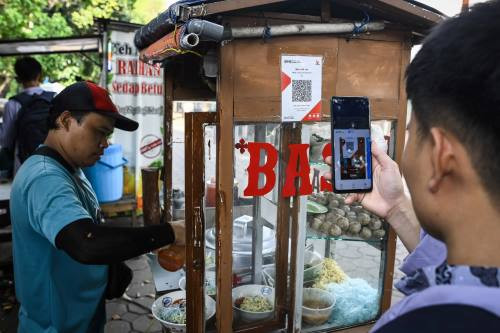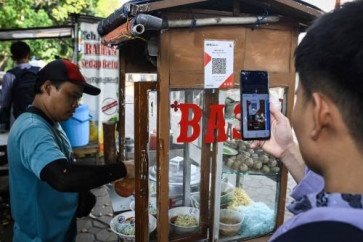Popular Reads
Top Results
Can't find what you're looking for?
View all search resultsPopular Reads
Top Results
Can't find what you're looking for?
View all search resultsSafeguarding the sovereign payment system
Regional and segment-specific incentives can help foster digital economic equity across Indonesia, reinforcing the nation’s commitment to full sovereignty in its payment sector.
Change text size
Gift Premium Articles
to Anyone
I
n his inaugural address as Indonesia’s new President on Oct. 20, Prabowo Subianto pledged his commitment to Indonesia’s golden future—when the country will stand strong, independent and sovereign. "We are ready to work hard for Indonesia's golden future, to be a nation that is strong, independent, sovereign, fair and prosperous. We do not wish to disrupt anyone, nor do we want to be disrupted by any other nation."
This statement underscores not only the spirit of independence but also highlights the necessity of economic sovereignty, including in the realm of payment systems. Here, sovereignty means Indonesia’s ability to manage its economic affairs independently, without reliance on foreign entities, covering crucial sectors like law enforcement, social issues and, most critically, the digital economy.
In the digital economy, sovereignty takes on heightened importance as digital payment transactions continue to surge. Bank Indonesia (BI) reports that digital payment transactions exceed three billion per month, amounting to a total of Rp 6.5 trillion (US$419 million). This volume grows annually by around 20 percent.
However, despite this growth, a significant portion of these transactions still depend on foreign principal networks. For instance, roughly a third of debit card transactions rely on foreign networks, and the majority of credit card transactions are processed through foreign payment systems.
The effort to strengthen payment system sovereignty began with the launch of the National Payment Gateway (GPN) in 2017. GPN enables interbank debit card transactions within Indonesia without routing through foreign networks, reducing transaction costs while fostering a robust domestic payment ecosystem. This initial step was critical in reducing reliance on foreign infrastructure and affirming Indonesia’s sovereignty over its own payment systems.
The next major development came in 2019 with the introduction of the Quick Response Code Indonesian Standard (QRIS). QRIS allows for interoperability among QR-based payment service providers, enabling consumers to transact by simply scanning a standardized QR code, regardless of the payment application they use.
QRIS offers unique advantages in efficiency. Unlike debit or credit cards that require Electronic Data Capture (EDC) machines, QRIS only needs a QR code sticker, making it a far more affordable and accessible solution for micro, small and medium enterprises (MSMEs). This initiative not only accelerates digital transformation, but also serves as a vital strategy for reducing dependence on foreign payment networks.



















